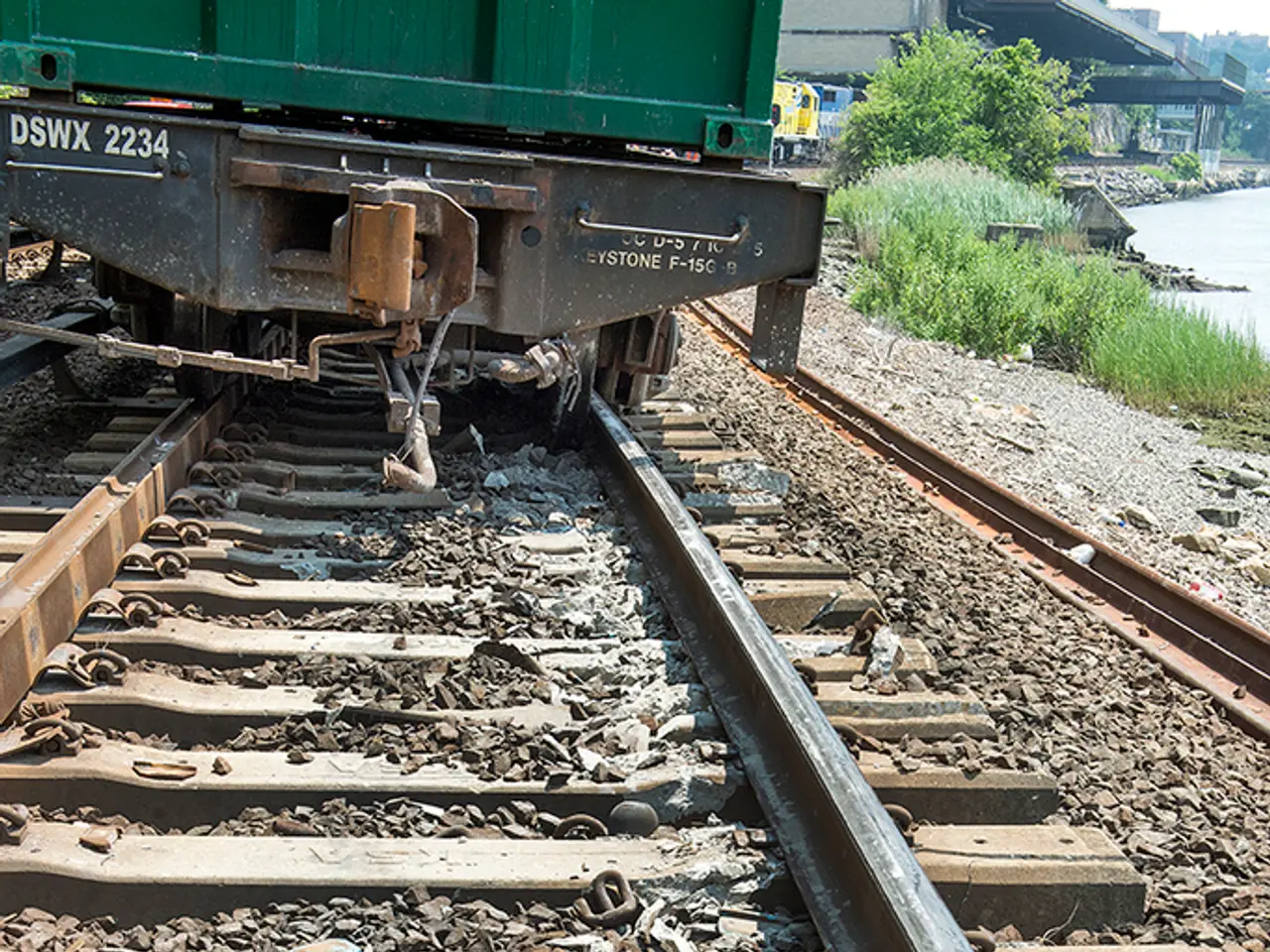Turkey secures $2.8 billion in eco-friendly funding for strategic railway to Nakhchivan
In a significant move for Turkey's infrastructure and sustainable development strategy, the country has secured €2.4 billion ($2.8 billion) in external financing for the Kars-Igdir-Aralik-Dilucu Railway Project. This ambitious initiative aims to establish a direct railway connection between Turkey and the autonomous Nakhchivan region of Azerbaijan.
The project, being implemented by the General Directorate of Infrastructure Investments under the Transport and Infrastructure Ministry, is a key element of Turkey's broader infrastructure strategy. It enhances regional railway connectivity, fostering stronger bilateral ties and a strategic partnership with Azerbaijan's Nakhchivan exclave.
Minister of Treasury and Finance, Berat Albayrak, has emphasised the importance of maintaining close cooperation with international institutions in securing this funding. The financing was led by MUFG Bank and involves international creditors, export credit agencies from Sweden and Austria, and the Islamic Corporation for the Insurance of Investment and Export Credit.
In addition, the Asian Infrastructure Investment Bank has provided Turkey with an additional $10 billion in funding, further strengthening the country's financial position for project-based investments.
The financing agreements were classified as green financing due to their alignment with sustainability objectives, demonstrating Turkey’s commitment to sustainable infrastructure development under its Medium-Term Program. The new rail link is expected to boost regional trade and economic integration, improving access for production centers within the region to international markets, which will heighten Turkey’s competitiveness and logistical capabilities.
Minister Simsek has stated that Turkey continues to support infrastructure investments that enhance the country's competitiveness and productivity. He also emphasises that the sustained inflow of funding reflects global confidence in Turkey’s economic agenda.
The Kars-Igdir-Aralik-Dilucu Railway Project, in addition to fostering sustainable transport and improving trade flows across the region, will also contribute to Turkey's economic competitiveness and productivity. This railway is described as a key component of an integrated development strategy that will improve access for regional production centers to international markets.
In summary, the external financing secured for the Kars-Igdir-Aralik-Dilucu Railway Project is significant because it underpins a major strategic infrastructure effort that strengthens Turkey’s economic and geopolitical ties with the Nakhchivan region of Azerbaijan, supports sustainable transport goals, and showcases international confidence in Turkey’s economic policies.
- The Kars-Igdir-Aralik-Dilucu Railway Project, a significant component of Turkey's infrastructure strategy, is being executed by the General Directorate of Infrastructure Investments under the Transport and Infrastructure Ministry.
- Minister of Treasury and Finance, Berat Albayrak, has stressed the importance of collaborating closely with international institutions in securing financing for this project, which involves MUFG Bank, international creditors, export credit agencies from Sweden and Austria, and the Islamic Corporation for the Insurance of Investment and Export Credit.
- The Asian Infrastructure Investment Bank has also provided Turkey with an additional $10 billion in funding, further bolstering the country's financial position for project-based investments.
- The financing agreements for this project have been categorized as green financing due to their alignment with sustainability objectives, reflecting Turkey's commitment to sustainable infrastructure development.
- The successful execution of this project is expected to boost regional trade and economic integration, enhancing Turkey's competitiveness, logistical capabilities, and access for regional production centers to international markets, particularly in the real-estate and business sectors.




